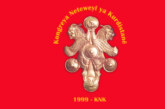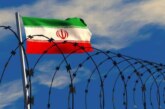Trump says the PKK is worse than ISIS. I say he’s wrong — and I’m a Turk.
That government’s current policies, however, have fallen into a pattern that I cannot condone. Erdogan is consolidating power through violence and repression, at the expense of everyday people. He does not work in the interests of the Turkish people or even the Turkish government — only his own. The changes I believed were possible years ago have been foreclosed by his behavior.
Nowhere is this more evident than in the violent and senseless attack on northeast Syria. Facing a faltering economy and a cautiously emboldened opposition, Erdogan has chosen once again to shore up power through war. The Turkish military advance has achieved little aside from killing hundreds of civilians and forcing thousands more from their homes under indiscriminate bombardment. Those within Turkey who oppose it have been jailed merely for referring to it as what it is: a war. The consequences will threaten peace, stability and democracy across our region for decades to come.
I have always believed in the importance of speaking out against this aggression. In 2018, I walked for more than 1,000 kilometers from Ankara to Diyarbakir, demanding a peaceful resolution to the conflict between the state and the Kurdish people. Recalling that experience now, I have realized there is more I can still do to break down the assumptions on which this war is based.
I am Turkish. I am a former government official. And I believe that the Kurdistan Workers’ Party, the PKK — described by President Trump as worse than the Islamic State — is not a terrorist organization.
For decades, Turkish leaders have used the threat of “PKK terrorism” to justify all possible atrocities that a state can commit against a people, and all possible violations of the principles of human rights and international law. We are taught that all Kurds are a threat because of the PKK, and that, without them, the Kurdish question would not exist.
What we were never told is that their movement was founded at a time when state policy was that Kurds as a people, millions of men and women and children, had no identity of their own. We never learned that their armed struggle began only after their first political leaders were captured, imprisoned and tortured, and that the decision to start a political organization at all was made only after decades of massacres and state oppression. We never acknowledge that every effort to crush Kurdish aspirations by force has given their movement more strength and support, not less.
Successive Turkish governments have chosen military solutions and public fear because they refuse to acknowledge the political forces that make conflict inevitable. Young men and women do not leave their homes to fight a long and brutal war when they believe they have any other choice. They do it when they have seen their villages burned, their elected representatives removed and jailed, their language and culture criminalized. In this regard, it is no one other than the state, which is currently jailing thousands of its citizens for “terror propaganda,” which serves as the PKK’s greatest propagandist and recruiter of all.
The group itself, on the other hand, has continuously called for a political settlement. Since the early 1990s, it has declared multiple cease-fires, and repeatedly asked our government to consider the possibility of dialogue. Its leaders understand what ours refuse to: The issue at hand is a question of rights and recognition that military force cannot solve.
We are told to fear and hate them because they are “separatists.” I can say now with confidence, as a Turk, that it is the policies of the state that are the source of hatred and division between the peoples of our region. The Kurdish movement’s goals of pluralism and decentralization are the only thing that can bring this country back together.
The international community has, until now, been more a part of the problem than the solution. For years, it has supported the war against the Kurdish movement without question. International support for Turkey’s war against Kurdish political expression, specifically from the United States, does nothing but empower those who use war to cement their hold on power and disempower those who work for peace. It is for this reason that I call upon the U.S. government to remove the PKK from its list of terrorist organizations.
Abandoning this narrow counterterrorism framing, and insisting on a real understanding of the causes of this conflict, is the only way to achieve democracy, security and a real end to this war. If I can reject the narrative of the society I was born in and the government I once worked for, there is no reason others around the world cannot do the same. My country, and all of its people, cannot afford otherwise.




